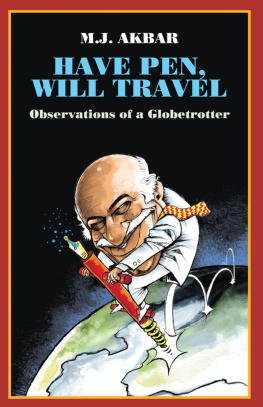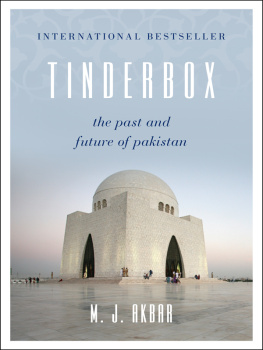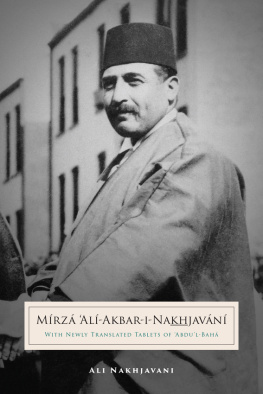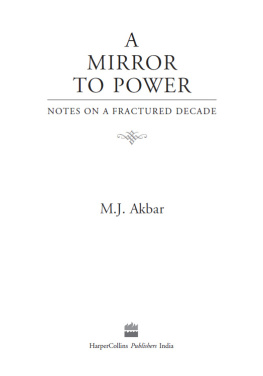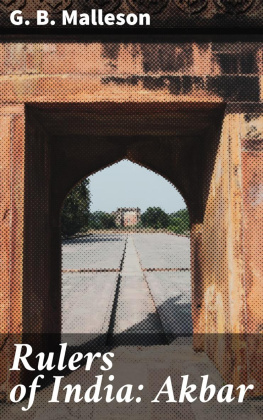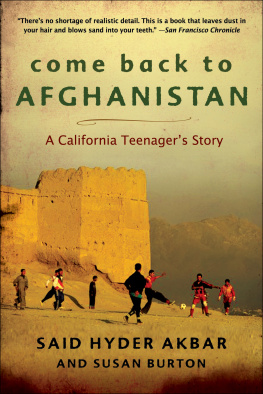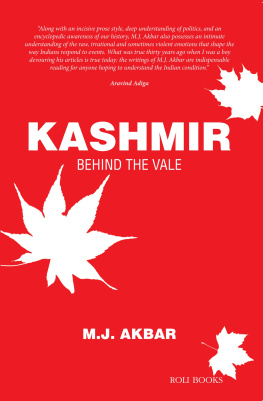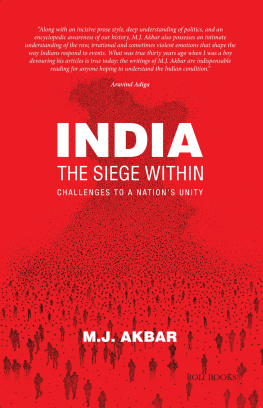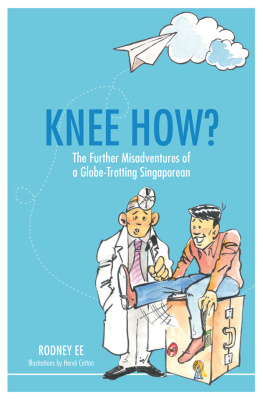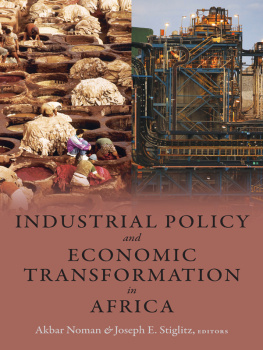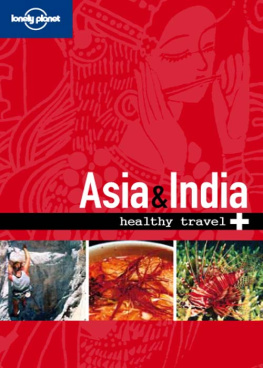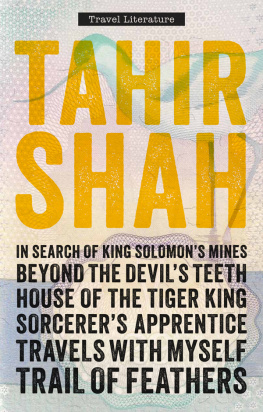

BY THE SAME AUTHOR |
M.J. Akbar | India: The Siege Within |
M.J. Akbar | Kashmir: Behind the Vale |
M.J. Akbar | The Shade of Swords |
M.J. Akbar | Kashmir: Behind the Vale |
M.J. Akbar | Nehru: The Making of India |
M.J. Akbar | Riot After Riot |
M.J. Akbar | Byline |
M.J. Akbar | Blood Brothers: A Family Saga |
OTHER LOTUS TITLES |
Ajit Bhattacharjea | Sheikh Mohammad Abdullah: Tragic Hero of Kashmir |
Amarinder Singh | The Last Sunset: The Rise and Fall of Lahore Durbar |
Alam Srinivas & TR Vivek | IPL: The Inside Story |
Ashok Mitra | The Starkness of It |
LS Rathore | The Regal Patriot: Maharaja Ganga Singh of Bikaner |
MB Naqvi | Pakistan at Knifes Edge |
Maj. Gen. Ian Cardozo | Param Vir: Our Heroes in Battle |
Maj. Gen. Ian Cardozo | The Sinking of INS Khukri: What Happened in 1971 |
Madhu Trehan | Tehelka as Metaphor |
Mushirul Hasan | India Partitioned. 2 Vols |
Mushirul Hasan | John Company to the Republic |
Nayantara Sahgal (ed.) | Before Freedom: Nehrus Letters to His Sister |
Peter Church | Added Value: The Life Stories of Indian Business Leaders |
Sharmishta Gooptu
and Boria Majumdar (eds) | Revisiting 1857: Myth, Memory, History |
Shashi Tharoor & Shaharyar M. Khan | Shadows Across the Playing Field |
Shrabani Basu | Spy Princess: The Life of Noor Inayat Khan |
Shyam Bhatia | Goodbye Shahzadi: A Political Biography |
Sunil Gupta | Living on the Adge at JhandeWalan Thompson |
Susan Visvanathan | The Children of Nature: The Life and Legacy of Ramana Maharshi |
Vir Sanghvi | Men of Steel |
Zubin Mehta | The Score of My Life |
FORTHCOMING TITLES |
Michel De Grece | The Raja of Bourbon |
SB Misra as told to Neelesh Misra | The Story of an Ordinary Indian |

Lotus Collection
M.J. Akbar, 2011
All rights reserved. No part of this publication may be
reproduced or transmitted, in any form or by any means,
without the prior permission of the publisher.
First published in 2011
The Lotus Collection
An imprint of
Roli Books Pvt. Ltd
M-75, Greater Kailash II Market, New Delhi 110 048
Phone: ++91 (011) 4068 2000
Fax: ++91 (011) 2921 7185
E-mail: info@rolibooks.com
Website: www.rolibooks.com
Also at Bangalore, Chennai, Jaipur, Mumbai & Varanasi
Layout: Naresh L Mondal
Cover Caricature: Sandeep Adhwaryu
ISBN: 978-81-7436-815-7
To Khushwant Singh,
the Master
CONTENTS
The Continent of Light
11 January 2006
IN THE NAME OF THE WARLORD
M OGADISHU, S OMALIA: O N 2 December 2005, His Excellency Eng. Hussein Mohammad Farah Aideed, Deputy Prime Minister (politics and security), Minister of Interior, Transitional Federal Government of the Somali Republice, called by appointment on Indias High Commissioner in Nairobi Surendra Kumar. He was dressed in a dark blue suit, tie and leather-strap sandals. The Eng. before his name was similar to Dr: Engineers now like to be known that they are thus qualified. In Somalia the preferred title of Hussein Aideed is General, a claim by hereditary right.
His father General Mohammad Farah Aideed became the worlds most famous warlord, immortal in local lore and deified by Hollywood when, in 1993, he broke American will by downing two Black Hawk helicopters and killing 18 American Marines whose bodies were dragged through the streets of Mogadishu, capital of Somalia. A reward of a million dollars was placed on his head and he was nicknamed, for some obscure reason, Yogi the Bear. The father did not die in an American prison, but in his own city. His son was living in America and had trained to become a reserve Marine. When his father died, he returned to Somalia to inherit the title and the loyalty of his fathers militia, though not the respect that his father commanded. Neither father nor son believed that the term warlord was appropriate. Aideed means one who rejects insults.
He seemed sincere, said Surendra Kumar. Hussein Aideed promised peace would finally come to Somalia in about six months, thanks to the latest deal brokered by mostly well-meaning (or simply fed-up) neighbours. He asked for Indian assistance in de-mining southern Somalia, building roads, improving healthcare and training the police.
Uniforms and guns for the police would not be unwelcome. Since there is nothing called a police force in Somalia at the moment, perhaps Hussein Aideed wanted arms and training for his own force. Kumar was diplomatic in his response; the visitors charm was not sufficient to reduce the hosts scepticism. The news is that India is not in any hurry to arm and train anyone or rebuild roads which are controlled by AK-47-wielding bands who laugh as they collect their tax from any vehicle brave enough, or desperate enough, to travel. The government of Hussein Aideed used to be based in Nairobi until the Kenyans exhausted their patience and told them to go.
Somalia is not a country in search of a government. It is a government in search of a country.
F ROM THE AIR, M OGADISHU is entrancing, lean and stretched out against the Indian Ocean, a city of two million in a country of seven. It begins in the greenery of banana trees in the south, curves along the pristine beaches untouched by the large waves that break much before the shore. The city ends where the sand rises to cliff height in the north before spreading into the arid and endless desert.
We flew into an airport in the north in a Red Cross plane. The Red Cross is now the only international organisation with a national presence in Somalia, working to bring a touch of contemporary concern to a land that has been driven back into a pre-industrial past by criminal greed and mindless violence.
The breeze cools the midday sunshine and throws sand into our eyes. The airport was built by Osman Hassan Ali Atto, warlord and politician, to ferry khat , a local nerve-soother. When the international airport closed down, its fortunes boomed. Wisely, Atto decided to share such fortunes with a fellow warlord. The commerce is limited but it is a commercial hub of sorts.
In 1998, two Red Cross officials disembarked at this airport from a similar plane and wandered off to answer a call of nature behind a nearby sand dune, a reasonable need after a two-and-a-half-hour flight. They were lucky. The rest of the group was kidnapped by gunmen who appeared over a small hill and held hostage for ten days. Somalia is now one of two regions where the Red Cross uses armed guards, rather than the humanitarian credibility that keeps it safe elsewhere. The only other place is Chechnya.

